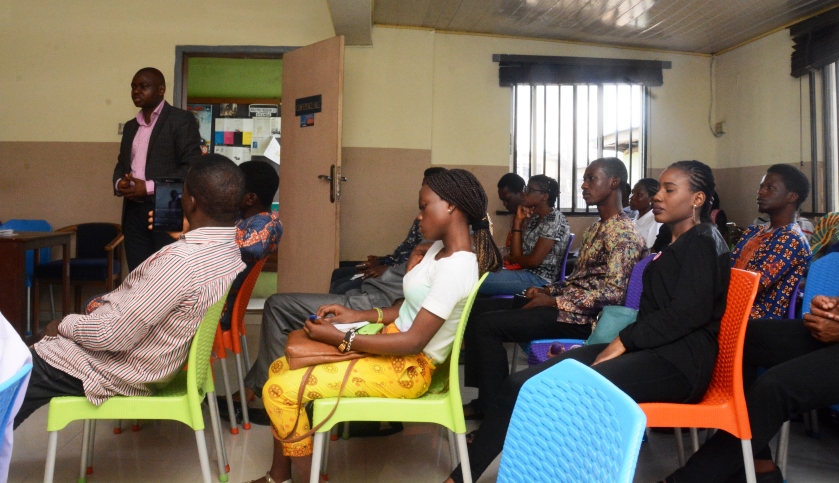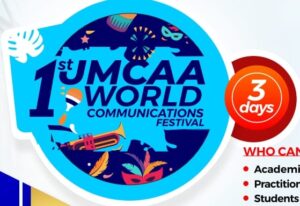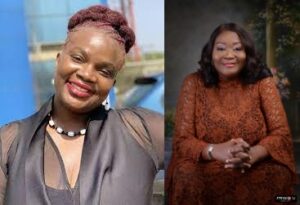Abdulwarees Solanke laments the problem of lack of regulation of media practice and poor remuneration in Nigeria
Jerusalem is the city of David, Prophet Daud in the Quran. It is the Yiddish rendering of the Arabic word, Darussalaam, as in the name of the small oil-rich Malay dominated South East Asian nation of Brunei Darussalam, translated in English as the abode of peace. Jerusalem, or Dar-es-Salaam, the Kiswahili spelling of the Tanzanian capital is the city of dream and of dream fulfillment. It is the city where the three Abrahamic faiths of Judaism, Christianity and Islam find their traces and co-habitation.
But Jerusalem ironically is now also the city of contestation for relevance and identity and clash of interests, at the heart of which is the possession or destruction of the Masjid al Aqsa, (or the Dome of the Rock). Who owns Jerusalem? Somehow, the prophetic profession of journalism now breathes with the spirit of Jerusalem, the spirit of accommodation and contestation, the spirit of identity crisis and relevance. Now, there is a like between Journalism and Jerusalem.
In 1996, my brother and friend in journalism, Kayode Komolafe, the scholar writer we commonly call Kas Kalada in the Lagos journalism circle with whom I shared fine moments on the editorial board of the defunct National Concord, presently the Deputy Managing Director of Leaders communications, Publishers of Thisday Newspapers contributed a very seminal essay in a book published by the Lagos State Council of the Nigeria Union of Journalists to undo the knot of journalism identity in Nigeria. The book titled Journalism in Nigeria, Issues and Perspectives was a special dedication to Dele Giwa and all other victims of the hazards of journalism.
Kalada’s essay, The impact of NUJ on Journalism in Nigeria, addressed critical issues like efforts at unionization, Professionalism and Trade Unionism and the Problems of dual status Kayode Komolafe made a very remarkable and illuminating submission on the paradox of the debate on the duality of NUJ’s status and by extension, of the profession, which is of whether Journalism is a trade or a Profession or whether NUJ is a trade union or a professional body. His indictment of NUJ and media investors was bitter given the experience poor remuneration for media workers and the inability of the NUJ to rise to the challenge wholesomely and qualitatively.
Let me quote K.K copiously:
Given what journalist unions in other lands have achieved in the realm of industrial relations for their members on wages, safety and health in working environments, social security and career-related issues, what NUJ should be legitimately indicted for is not having a trade union status. It should rather be for failing (in the last 18 years) to have met the crying need of its about 8000 members for improved conditions of service through collective bargaining…Arbitrariness on the part of the employers most of whom appear ill-informed about investment in the media industry is the rule rather than the exception. Wages are disproportionately low compared with what obtains in the other sectors of the economy. And for a job that saps the youthful energy mentally and physically, hardly is any thought given to provision for pensions and gratuities. The concept of social security is so alien to the profession where material vulnerability is so taken for granted by members who often joke mindlessly that is is a curse to expect end-of service entitlements from an employer.
K.K’s concerns find illustration in the experience of most Nigerian journalists whose pay is mere pittance in a challenged economy. This accounts for the very high turn-over of journalists in most media organizations as reporters and editors jump from print to broadcast to PR and other sectors where they can earn regular income. Ironically, there is a pull or attraction for this prophetic job among those who do not know the pressures and pains of journalism. It is in the glamour and lifestyle of the average journalist, which unfortunately is a mere facade. It is in the supposed influence and connection the journalist has, when the journalist is the one that falls into the category of use and dump. It is in the assumed popularity the journalist enjoys, which is mostly in name.
But one fact that we often gloss over is that journalism is the most open profession given the natural freedom of expression we all enjoy. While the standard academic qualification ordinarily should be a university degree or HND in mass communication, the truth is this holds no water in entering journalism. Every Tom, Dick and Harry that has a flair for writing or has a good voice and face now strays into journalism. Ours is a profession where somebody who was not clear about his future right from the secondary school and ended up studying just anything finds accommodation in journalism.
We are in a profession where somebody desperately in need of job after being kicked out from the bank or could not make the employment list in his area of specialization lands in the newsroom to learn the rope and easily finds a space because he can babble in American accent on air or dazzle with some flair for words. The point is effective professional organ or agency to regulate entry into the journalism profession.
I cannot imagine somebody claiming to be an accountant without being chartered by ICAN or ANAN. It is not possible to practice as a medical doctor or a dentist without being registered with the Medical and Dental Council of Nigeria even after undergoing the long training in the medical college. Who can really lay claim to be an engineer without COREN registration or can someone practice as a lawyer without first attending the Law School and being called to the Bar. And this extends to most other professions of eminent standing.
If you enter or practice these professions without the requisite qualification or you are guilty of misconduct, you are sanctioned heavily, which may entail the withdrawal of your practicing licence and even jail. So, the germane question is who regulates journalism and media practice? What is the entry qualification? What is the required certification or license to practice?
We can raise more questions from these few above. However, they may never be answered because of the natural freedom of expression and the propensity to exploit that freedom even negatively by the society. So, the failed or the fame-seeking doctor, lawyer or accountant who has a good voice and the flair to write easily becomes a ready resource person or hand to analyse health, judiciary or business and economy as the case may be. The fast pace and smooth talker with vast sports interest is easily employed as sports reporter even if he did not do so well in or O level GCE.
Ours is a profession that saps youthful energy mentally and physically, according to Kalada. But because it is an open profession, its entrants are mostly under-remunerated even if they come in with Ph.Ds. Or at the extreme, it is the survival of the fittest in an industry that is competitively choking. So, this best profession that opens its doors to all is in crisis. In this Jerusalem called Journalism, many are not finding peace, joy and fulfillment because we have not set its standards and qualifications to practice in spite of the existence of bodies like the Nigerian Press Council, the Nigeria Union of Journalists and the Nigerian Guild of Editors. When RATTAWU or NUJ makes noise, it is not even heard well on the airwaves nor does it enjoy generous coverage in the newspapers in which its members work. Quite an irony!.
Unfortunately therefore, most Nigerians in this creative and powerful industry in pain seem to labour in vain because the profession is so generous and accommodating, We need more views like that of the Kaladas to define the future of journalism in our nation. Journalism is too good to be bastardized, too noble for its practitioners not to live in the abode of peace, comfort and fulfillment, a Darussalam.






